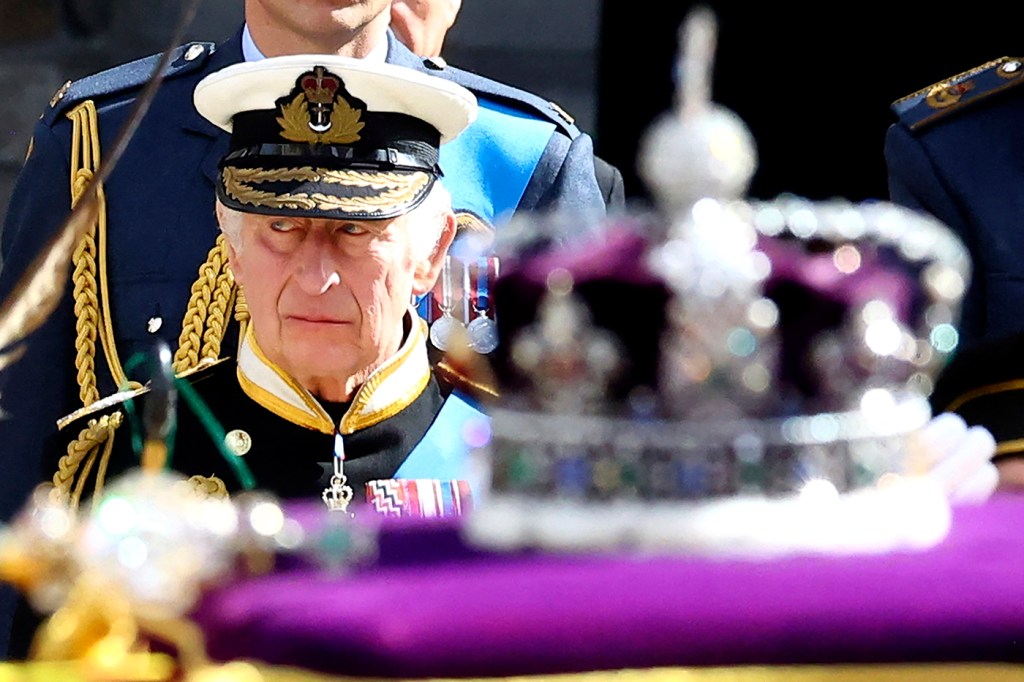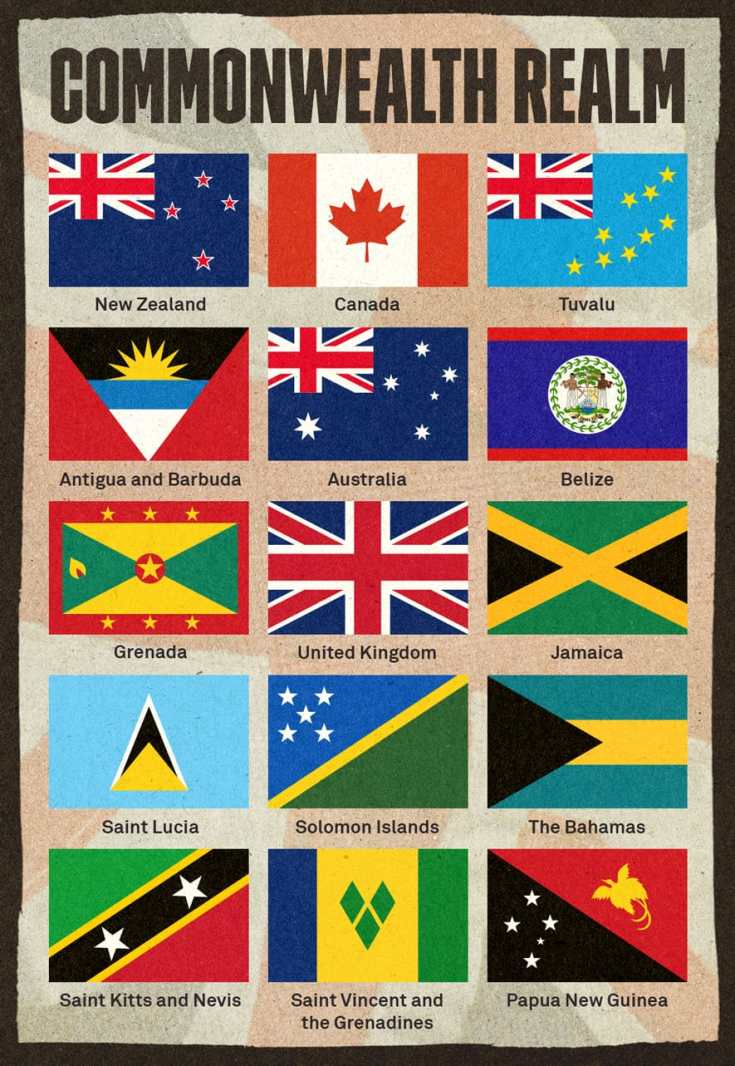Why the UK needs the realms and the Commonwealth much more than they need the UK

Nicole Aljoe, who is Jamaican, has seen an array of reactions to the death of Queen Elizabeth II in her family chats on WhatsApp.
With some relatives living in Canada and the U.K., Aljoe has noticed that older people were sad and upset about the passing of the queen and talked very respectfully of her.
“They have a completely different relationship with her,” Aljoe, professor of English and Africana studies at Northeastern University, says.
Many of Aljoe’s older relatives attended schools in Jamaica or the U.K. at the time when Queen Elizabeth II was portrayed as the mother of the realms, she says, which meant they were a part of her family.

Jamaica was one of the dominions of the British monarchy from 1655 until 1962, when it gained independence from the British Empire. The country remained a Commonwealth realm with the British monarch as its head of state, represented by an appointed governor-general.
Nowadays, the British monarchy rules over 15 remaining realms, including the United Kingdom, Australia, Canada, New Zealand, Jamaica, Antigua and Barbuda, the Bahamas, Belize, Grenada, Papua New Guinea, Solomon Islands, St. Kitts and Nevis, St. Lucia, St. Vincent and the Grenadines, and Tuvalu.
The British monarch also presides over the Commonwealth of Nations, a voluntary association of 56 countries, most of which are former British colonies, with a combined population of 2.5 billion people.
Aljoe’s younger relatives had a more nuanced if not outright negative reaction to Queen Elizabeth II’s death, she says, because they had an opportunity to take postcolonial studies classes and learned about the wrongdoings of the British Empire. The younger generation believes that the queen as the monarch was somewhat responsible for horrifying events in Jamaica’s history, she says.
Jamaicans have been seeking an apology from the British crown and reparations for decades, writes NPR, as the empire forced hundreds of thousands of African slaves to toil the island and cultivate cane sugar under brutal conditions, including rape and murder.
“One could argue that continued devaluation of the Jamaican economy, the fact that it has to depend on tourism is a complete outgrowth of the fact that it was colonized by the U.K. and that certain aspects of its potential economic development were not explored,” Aljoe says.
Similar feelings are shared by people in other former British colonies, for example, in Africa.
The leader of the South African party Pan Africanist Congress of Azania, Mzwanele Nyhontso, said that his party couldn’t sing praises for a monarchy that engineered trans-Atlantic slave trade that resulted in the genocide of more than 12 million Africans and in forced, illegal extraction of more than 20 million compatriots. Slavery robbed the continent of its labor and built economies of Western Hemisphere instead, Nythontso said.
Northeastern’s Associate Professor of Cultures, Societies and Global Studies Richard Wamai says the death of Queen Elizabeth II marks a lost opportunity for the monarch to come to terms and move further ahead from the injustices committed in Kenya, his home country.
Princess Elizabeth was staying at Treetops Lodge in Aberdare National Park in Kenya in February 1952, when her father, King George VI, died, and she learned that she became a queen at the age of 25.
One year later, Wamai’s mother, Immaculate Wangui Wamai, was imprisoned for three years for supporting Mau Mau freedom fighters, when they rebelled against the white European colonist settlers, the British Army and local pro-British forces.
Wamai’s mother was concerned with oppression and brutality against Black Kenyans, he says, which escalated after the British declared a state of national emergency in 1952.
“She could not stand this and hence got involved in the fight for independence,” Wamai says. “She actively participated in the struggle by providing Mau Mau freedom fighters with food, refuge and information.”
In 2013, when the U.K. announced a compensation equivalent of $3,000 for 5,000 elderly Kenyans for abuse and torture they had suffered during the Mau Mau uprising, Wamai’s mother turned it down because it hardly began to account for the extent of the suffering she and other Kenyans had gone through, he says.
Queen Elizabeth II never apologized for the atrocities that took place under her watch during Kenya’s struggles for independence.
The legacy of colonialism is understood very differently by former colonies than by colonizers, says Pablo Calderon Martinez, assistant professor in politics and international relations at Northeastern University–London.
“What is so impressive about Queen Elizabeth II, she always managed to put her youth and the errors of her reign behind her,” says Calderon Martinez, noting that many atrocities were committed across the Commonwealth in an attempt to maintain some of the British imperial presence.
The main objective of the monarchy is to survive, Calderon Martinez says, and Queen Elizabeth II was good at understanding that, moving into the background when necessary. She was always able to remain neutral, he says, and in some countries, she even managed to stay a very popular figure.
Since Queen Elizabeth II’s death, many have praised her for reinventing the monarchy and herself as a positive force and a common link between the members of the Commonwealth of Nations.
But many of the Commonwealth’s members have matured since, Calderon Martinez says, and they might not need the monarch or the U.K. to thrive anymore.
Jamaica announced its plans in March 2022 to become a republic during a royal visit of Prince William and his wife Kate to the country. Antigua and Barbuda reiterated its plans to remove the British monarch from the head of state position in wake of the queen’s death. Bahamas Prime Minister Phillip Davis said that he would hold a referendum to determine if the public wished to cut ties with the monarchy.
Republican movements are gaining momentum in the developed democracies like Australia, Canada and New Zealand on par with developing members of the Commonwealth realm.
In Australia, the proposal of becoming a republic was narrowly rejected in a referendum in 1999, but recent polls show that about 54% of Australians would vote for removing the monarch as the head of state. Australian Prime Minister Anthony Albanese said at a dinner held by the Australian Republican Movement in 2019 that “a modern Australian republic is an idea whose time has come,” although he refused to discuss the issue publicly right after Queen Elizabeth II’s death.
New Zealand Prime Minister Jacinda Ardern reaffirmed her support for a republic and said that her country will become one in her lifetime.
More than half of the Canadian population is ready to leave its allegiances to the British crown in the past.
There is not much the U.K. can offer other Commonwealth members as well, Calderon Martinez says.
“It’s a very loose organization that is becoming more and more irrelevant.”
The Commonwealth is not really an economic partnership, he says, as the European Union is the main trading partner of the U.K.
“It doesn’t seem to fulfill any important role internationally,” Calderon Martinez says.
Although there was talk in the U.K. after Brexit of strengthening the Commonwealth, other Commonwealth nations do not seem to be trying to ensure that, Calderon Martinez says. Some of them probably used membership in the Commonwealth to gain some influence within Europe, he says.
Thus, the U.K. needs the realms and the Commonwealth of Nations much more than they need the U.K.
The U.K.’s influence across the world is continuing to wane and diminish, and further shrinking of the realm is problematic because it has a high reputational cost, Calderon Martinez says.
“There is no denying that there’s much more important great superpowers out there. China, the U.S., Germany, the E.U. as a whole, even Russia,” Calderon Martinez says. “And in international relations, the only recognized power is the one you can portray. You have to show your power.”
In his opinion, King Charles III doesn’t have the same good standing, charisma and political capital that his mother had to keep the realm and the Commonwealth as is. It is unclear what world events could become King Charles III’ moments to shine and show his great statehood the same way that Queen Elizabeth II managed to do as the monarch of a shrinking and dissolving empire, Calderon Martinez says.
“These may be the final nail in the coffin of the Commonwealth, an organization that was struggling for relevance anyways. And I don’t see how it recovers from this, or if the benefit is there for countries other than the U.K. to continue the Commonwealth,” Calderon Martinez says.
Cynthia McCormick Hibbert contributed reporting for this story.
For media inquiries, please contact media@northeastern.edu.






